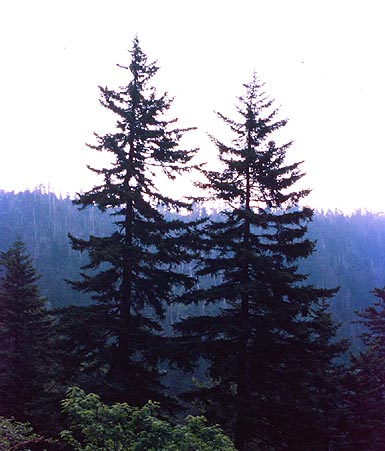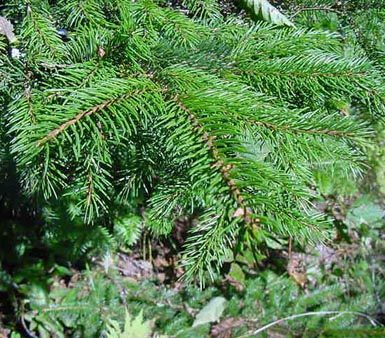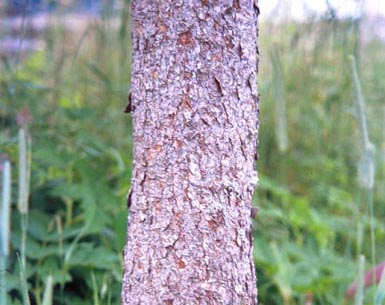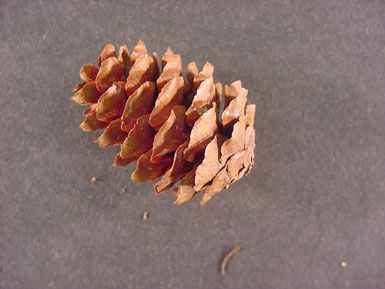Form: This is a medium-sized tree attaining an average maximum height between 60 and 70 ft. It has a narrow and dense crown typical of spruce spp.

Needles:
Arrangement: spirally arranged on all sides of the twig similar to a bottle brush
Length: 1/2- 5/8 in.
Shape: stiff, sharp pointed
Other: needles often curve upwards and are on raised pegs

Bark: The thin bark is gray-brown to red-brown in color and scaly when both young and old.

Cones: 1-1.5 inch cones are chestnut-brown in color with very light scales.

Distinguishing characteristics: The needles have more of a yellow-green tint than both white and black spruce. Needles on red spruce are more glossy and the bark has more of a red tint than white spruce.
Range: Most populations are concentrated in New Brunswick, New Hampshire, Vermont, and upstate New York. Isolated populations occur in the southern Appalachians at altitudes above 5000 ft.
Silvics: This species is relatively tolerant of shade, but less so than fir. It prefers moist upland soils.
Ecological and cultural importance: It is commonly associated with Fraser fir in the southern Appalachians. As Fraser fir has continued to die off, red spruce has become more susceptible to wind throw.